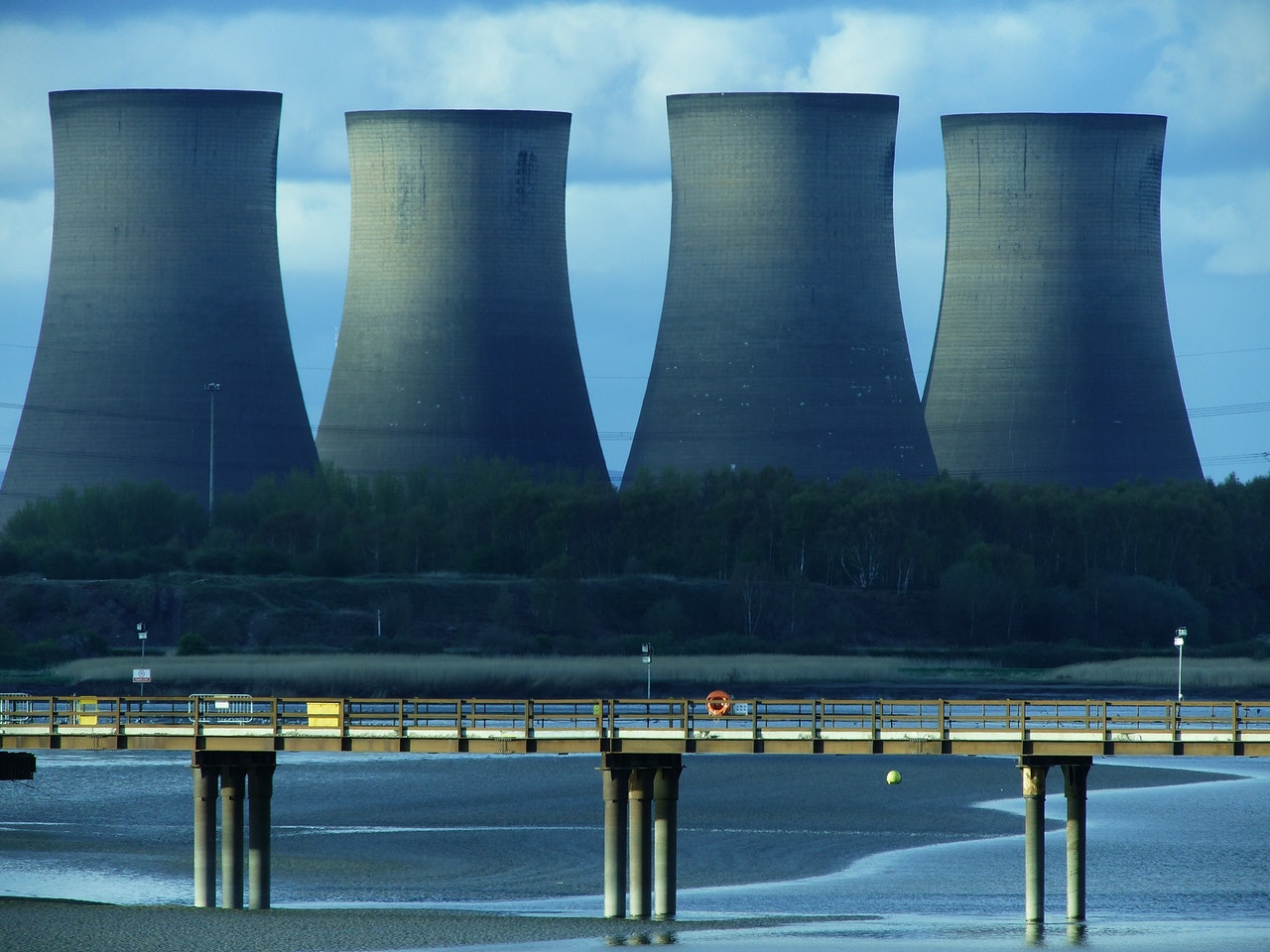Nuclear power tends to provoke strong reactions.
As the world seeks to avert catastrophe by preventing the release of the world’s fossil fuels into the atmosphere – something that would accelerate climate change and hasten the end of civilization as we know it.
Nuclear power has a number of advantages which leads it to being a popular choice among many highly respected environmentalists and climate scientists such as James Lovelock, James Hansen and George Monbiot, among others.
Its most obvious advantage is the ability to supply scale on an industrial basis to developed economies in Europe and North America, also offering the ability to provide a baseload supply.
Nuclear power produces little in the way of emissions, and hence would enable large scale reductions in the carbon footprint of the world’s largest economies.
It is an obvious choice for many focused on climate change however it has a number of disadvantages. In the current political climate some of these are more obvious (such as the security risks) however some of the disadvantages remain regardless of the political or security backdrop.
Pollution
Nuclear waste is one of the major disadvantages of nuclear power. It is difficult to persuade citizens of the benefits of living near to a nuclear waste dump, which poses considerable hazards in the form of radiation. There are also security issues around the usage of nuclear waste as it could be used to form a so-called “dirty bomb”.
Another critical issue is the time required to store nuclear waste. High level radioactive waste is a hazard for thousands of years. This would be equivalent to modern societies having to deal with waste that was left by the Roman empire.
The costs, both in planning and security are enormous.
Disasters
It is hard to ignore the psychological impact of nuclear disasters. In the public consciousness for many years was the Chernobyl disaster in Ukraine, only recently overshadowed by the Fukushima disaster in Japan.
While the details and effects of both disasters have been written on numerous occasions, the psychological impact cannot be understated. Clearly while coal power plants kill many more people via pollution, the fear and panic induced by nuclear disasters in addition to the long term impact on the surrounding areas mean that many people will have understandable fears around their construction.
Terrorism
It would be amiss to not acknowledge that a time of heightened security tensions that the public may be concerned around the threats facing nuclear power stations. Although this magazine is not well placed to comment on the exact nature of the threat from terrorists, it is obviously a potential risk to the public and national security.
While the fact is that coal powered plants kill far more people through pollution, the reality is that the public is hostile to nuclear power. After Fukushima several nuclear power plants were closed in Germany.
There are legitimate criticisms of the weaknesses of renewable energy, however the fact is that investment in renewable energy and storage technology offers the ability to provide pollution free energy and very little in the form of national security risks.
While terrorists could conceivably bring down a wind turbine to damage local properties, such threats pale in comparison to nuclear power. Renewable energy also offers energy security, as the ability to generate domestic energy without depending on foreign nations is of great value to energy dependent nations such as the UK that are highly dependent on imports to keep the lights on.

Be the first to comment on "The benefits and disadvantages of nuclear power"